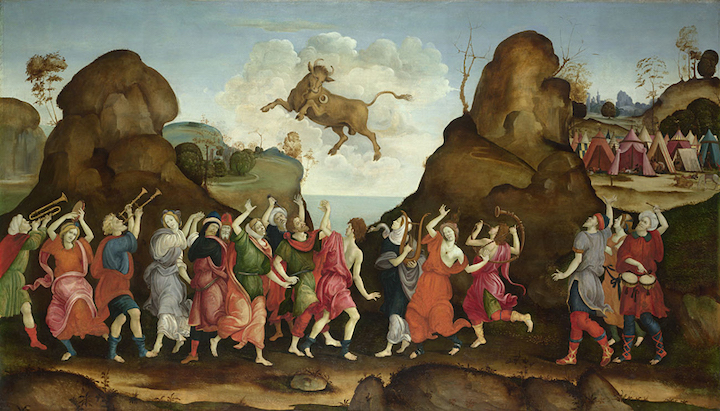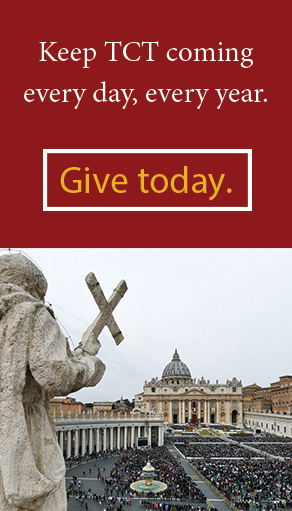The de facto atheists who tend to dominate American culture today imagine that the disappearance of Christianity will be a nearly unmixed blessing.
Gone will be those many bad things that they think constitute a robust Christianity: narrow-mindedness, sexual puritanism, intolerance, racism, xenophobia, anti-Semitism, anti-Islamism. anti-Darwinism, mistrust of science generally, political conservatism, anti-progressivism, and a tendency toward fascism.
The new and improved Americans who will replace these old-fashioned Christians will be individuals who think for themselves, are tolerant, open-minded, pro-science, sexually free and happy; and who have a genuine concern with “social justice” – that is, the well-being of their fellow human beings. In other words, Christianity will be replaced by a morally benign atheism. The arc of history is long, but it bends toward a benign atheism.
Well, I think this is a mistaken expectation – indeed, the very opposite of what’s likely to happen. Just look at history.
When a national religion fades away, it is not replaced by a genial association of rational altruists. No, it is replaced by a new religion or pseudo-religion that turns out to be worse than Christianity was at its worst. I cite two instances.
First, in the course of the 19th century in Germany, atheism flourished among many philosophers, and this in turn had a great influence on many Protestant thinkers. Protestantism, still widely popular outside the Catholic regions of Germany, got more and more watered down. Its dogmatic content grew thinner and thinner as theologians tried to blend the best of Christianity with the best of anti-Christianity. It was transformed into a “modern” or “liberal” kind of Protestantism, a synthesis of contradictory elements that had little appeal to the heart and minds of Germans who yearned for a full-blooded religion.
A religious vacuum appeared in the hearts and minds of many Germans. The higher classes tried to fill the vacuum with “Kultur” – fine music, fine literature, fine paintings, etc. The middle classes tried to fill the vacuum with nationalism, the lower classes with socialism. The trauma of World War I aggravated all this. Post-war, the more cultured classes turned to cultural expressionism: very thin gruel for a heart pining for religion. The working classes turned to Communism. And the middle classes turned to Nazism.

Second, in 19th century Russia, Orthodox Christianity, no doubt because of its too-close connection with the Tsarist Autocracy, failed to satisfy the intelligentsia. Quite the opposite. By and large, it disgusted the intellectuals, who with some notable exceptions (e.g., Dostoyevsky) turned in the direction of agnosticism and atheism. They embraced the idea that Russia must have a great social revolution. In late 1917, that great revolution arrived in the form of Communism, a pseudo-religion. The founder of this new religion (analogous to Jesus as founder of Christianity) was Lenin. The first and greatest “pope” of this religion was Stalin, the infallible Vicar of Lenin.
These two new religions both promised “social justice,” though they had somewhat different ideas as to what counted as social justice. And they both “discovered” – perhaps independently of one another or, more probably, influenced by one another – a great new moral “truth.” They discovered that immeasurable amounts of lying, imprisonment, torture, and murder are morally allowable – provided of course that these things are done for the sake of making the world a better place. They discovered that the arc of history bends toward mass murder.
But this, our post-Christian propagandists assure us, won’t happen in America. We Americans are too well supplied with commonsense for this to happen. Perhaps a small number of “lunatic fringe” Americans will fall for crazy movements resembling Communism or Nazism. But average Americans care for the concrete processes of making and spending money; they care nothing for abstract worldviews or philosophies of history.
Well, I’m not so sure. I cringe every time I hear somebody say that X or Y or Z is “on the right side of history.” President Obama said this when applauding the 2015 Supreme Court ruling that the U.S. Constitution guarantees a right to same-sex marriage. Anybody who speaks this way, whether the U.S. president or a progress-minded college sophomore, carries an abstract philosophy of history in his head.
I concede that post-Christian Americans have not settled on a single pseudo-religion – yet. They are still in an exploratory stage, trying this and trying that and trying something else. It may take years or even decades for them to settle on a single pseudo-religion that can unify all the post-Christians – just as it took post-Christian Germans a long time to settle on Nazism and post-Christian Russians a long time to settle on Communism. In all probability, this single pseudo-religion of the future will be a grand synthesis of the many particular pseudo-religions that people are experimenting with at the moment.
Who precisely? Who is “experimenting” with particular pseudo-religions at the moment? The following: (a) persons with a devotion to environmentalism; (b) persons devoted to the idea of gay/lesbian rights; (c) those devoted to the (really bizarre) idea that persons of one sex can, by virtue of having certain feelings, become persons of the opposite sex; (d) those who believe that the mass murder of unborn babies is a virtuous activity, deserving of taxpayer support; (e) persons who hold that we should make euthanasia available to all who want it, and that we should impose it on those who happen not to want it but who, if they were rational, would want it; (f) persons convinced that whites are, almost by nature, racist; (g) people who believe that society, acting through public and private agencies, should stifle the wicked opinions of those who are frankly unwilling to get on the right side of history.
Since the above people, all of them hard-core fanatics, are surrounded and encouraged by an immense cloud of soft-core believers, I fear that we are not far from the day when a comprehensive post-Christian worldview will triumph in the land of the free and the brave.
*Image: The Worship of the Egyptian Bull God, Apis by a follower of Filippino Lippi, c. 1500 [National Gallery, London]
















